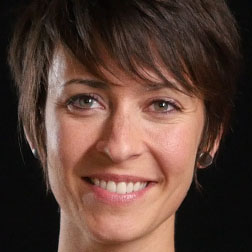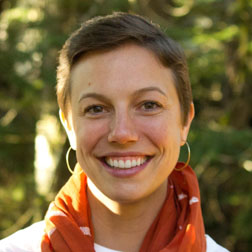Here’s an invitation: Turn on the news for 10 minutes or read the front page of any major newspaper and get really still – relaxing your face and jaw, letting your belly go, feeling your feet on the ground, opening your eyes wide. What do you notice?
If you’re anything like me, you might start to tune into a creeping feeling that something major is lacking in our society as you scan or listen to the headlines. I’ve experienced a similar phenomenon inside of the companies and corporations I’ve spent time in over the past five years, working on culture and developing leaders. There is a lot of talking happening about plans and strategies about things like collaboration, psychological safety, innovation. Very rarely in the organizational consultant/executive leader client relationship do these concepts about these desired ways of working give way to the here and now the reality of becoming a collaborator, for example. That is to say, the assumed alignment on a definition of a concept often carries the weight necessary for folks to feel like they’re doing the thing they’re espousing when they aren’t.
What’s more, since we’re in this abstract place so much of the time, we’re actually missing what’s in front of our faces. We’re missing each other, and we’re missing a huge amount of the richness of our lives. We’re lacking the deeper resources that live in the contours of our bodies and hearts and the private spontaneity of our aliveness. This is a grim state of affairs. The way this lack feels in my body when I’m in these dynamics or observing these cultures is energetically dead. It is no wonder people are burnt out and disengaged.
Our ability to reflect on, and communicate about, abstract and conceptual dimensions of our experience is hugely rewarded in culture. And it is vital – we need this ability to navigate the complexity of our daily lives and to tackle the wicked problems facing our society and our planet. And yet something is amiss.
Thinking has become our being. And our obsession with living in concepts and abstractions has left our society malnourished in other crucial capacities for living a meaningful, compassionate, and fulfilling life. In some real ways we’ve lost the balance of our humanity and at the same time, the mere fact that this is a relevant topic (to at least some minor portion of society) means that the tide is starting to turn. We’re ready to be alive again. So how can we develop a companion for our beloved concepts?
Starting close in.
For the past month or so, David Whyte’s poem “Start Close In” has been working me. It begins:
Start close in,
don’t take the second step
or the third,
start with the first
thing
close in,
the step
you don’t want to take.
For me, in this passage and indeed throughout the whole poem, David Whyte is imploring us to stay as close as we can, so very close, to our own voice, our own intuition, indeed to our own heart. He is inviting us to take the step toward ourselves and to begin again from there, again, and again, and again. This isn’t an invitation to further build your ego and all of the ways you use your personality to keep you from feeling the life force coursing through your body. No, it is an invitation to enter into the aliveness of the moment and to stay open to its unfolding. It is an invitation into intimacy with yourself that is before and beyond the conceptual.
Imagine if, in our society, the complexity of thinking was met with an equal complexity: A highly developed capacity for being in touch with what is happening right now. What if our concepts and abstractions also included the reality of each moment? For one thing, we’d be working with a lot more information at our disposal; an abundance of possibility.
There is something so physical and almost palpable about the simple instruction: Start close in. Much of the work I’m doing with folks today is growing their ability to ‘stay close in’ to their experience of the ordinary moments of their daily lives – in meetings, having conversations, relating to their loved ones and themselves. Experiences most of us have every day. We explore, for example, what aren’t you saying? Who are you giving your power to? How does it feel in your body to be with that person? What’s in your awareness right now? The key to this exploration is placing the inquiry in the body, not in the head. In this way, we are cultivating intimacy with our experience.
What I find powerful about pointing our attention in the direction of the seemingly mundane is that with a little effort and some clear framing, we can catch ourselves in the habitual or the mindless moments where our concepts of who we are, pave over any aberrations in the experience of who we are. There is so much aliveness available when we are closely attuned. Like my Buddhist teacher says, there’s a whole world of experience in a single breath. When we let the abstraction fall away and we tune into the sensation, the feeling, the energy moving through us we take a step closer to ourselves and thus closer to everyone else. Imagine what we could create and innovate if our abstractions and concepts included our aliveness and connection instead of ignoring the reality of our living.
How would your life change if you ‘started close in’ with yourself and your own experience in each moment of the day?
In my experience, when I am able to get so very close to my experience in this way, it actually doesn’t feel so much like Dara anymore, but rather like reality unfolding to itself, by itself, for itself. While my most notable experiences have been in deep meditative states, I actually experience this on a fairly regular basis when I’m working with both groups and individuals. For me, it is a highly relational experience. I’m sitting, speaking with a client, in a state of deep listening. My body is relaxed, my breathing is slow and even, and my attention is single-pointedly attending to what my client is sharing. At the same time, my awareness is vast and open. I begin to feel energetic sensations, almost like getting the chills, but more subtle. It is like a wave of glitter throughout my body. I am literally feeling my client and our relationship.
These are the moments I feel most alive; they are vibrant and vibrating and they are direct embodied experiences. There is no concept there, no abstraction, simply wise and intelligent experience full of information. It has been in these moments that I have learned to cultivate openness to the unfolding of my life. And I believe this is where an orientation of abundance springs from.
Consider cultivating a relationship with your aliveness through your energetic heart – the space in the center of your chest. Note that the direct experience of the body is different from the rational, scientific, or mechanistic understanding of the body. Thus we aren’t focused on the heart as in the vital organ, but this more subtle place in the center of your chest. Here is a short practice for learning to listen to your energetic heart:
- Take a few moments to settle your mind into your body. You can do a body scan or take some deep belly breaths.
- Close your eyes and drop your attention into the heart space in the center of your chest.
Notice the rising and the falling of your breath as it occurs naturally, from the point of view of this space. - Like peeling an orange, shed the tough outer layers of your thinking mind and tune into the more subtle dimensions of your experience. Bring your attention even closer to the sensations alive in this space.
- Now, with your attention in your heart space, place an inquiry inside of your energetic heart – ask your heart for example: How do you feel?
- Stay open to the subtle flow of information, allowing your heart to answer. Notice is there color, shape, pattern or texture. Are there words or emotion for you to receive?
- Bring your attention close to whatever emerges. Focus on the felt experience and stay away from narrative or asking ‘why’ something is emerging.
- Allow the information to ripple out and wash over your body as it dissipates.
When you’re finished listening, gently open your eyes, maintaining the heart connection for as long as possible.
Take note: Whatever you hear and feel when listening to your heart in this way is there whether or not you’re listening to it. How would your daily life – work and home – shift if you began participating with your aliveness?
Dara Blumenthal, Ph.D. works with teams, leaders, and individuals to become more powerful, expansive, and unique. Throughout her career as an organizational and executive consultant, Dara has worked across the Fortune 500 on culture, leadership development, and organization design. She is trained as a Sociologist (Ph.D.), Developmental Coach, Integral Facilitator, Critical Theorist (M.A.), and Usui Reiki Master. Dara also teaches meditation and practices in a Tibetan Buddhist Lineage. You can learn more about Dara’s practice at www.darablumenthal.com.



5 thoughts on “You Can’t Think Your Way Into Reality”
Thank you for the thoughtful? essay about presence Dara. The beauty of modern psychoanalysis is all about being in the present, and allowing thoughts, feelings, sensations, fantasies to be spoken and let go of. Seems like an unexpected relative.
Thanks Fred! Not so unexpected – psychology is a pillar for me and there is some incredible work happening across many psychotherapy lineages out there! 🙂 Thanks for your kind words and engagement.
Thanks Fred! Not so unexpected – psychology is a pillar for me and there is some incredible work happening across many psychotherapy lineages out there! 🙂 Thanks for your kind words and engagement.
Dara, thank you for articulating so well what is so often glossed over in the ‘leadership’ and ‘human development’ field – the unsexy process of starting close in, and staying close in to direct experience as our Being, our Presence (or reality) unfolds and guides the next step. That’s all. I just want to say thank you.
Thank you, Rashmi! I’m glad to hear that it resonated with you and it is helpful to hear your perspective of it being thought of as “unsexy” – that helps give me a new perspective on it too!